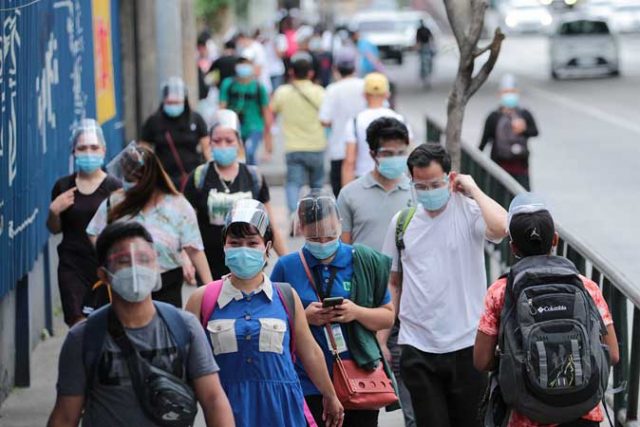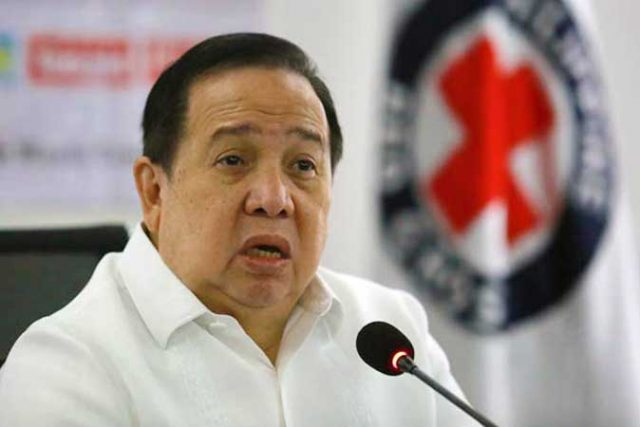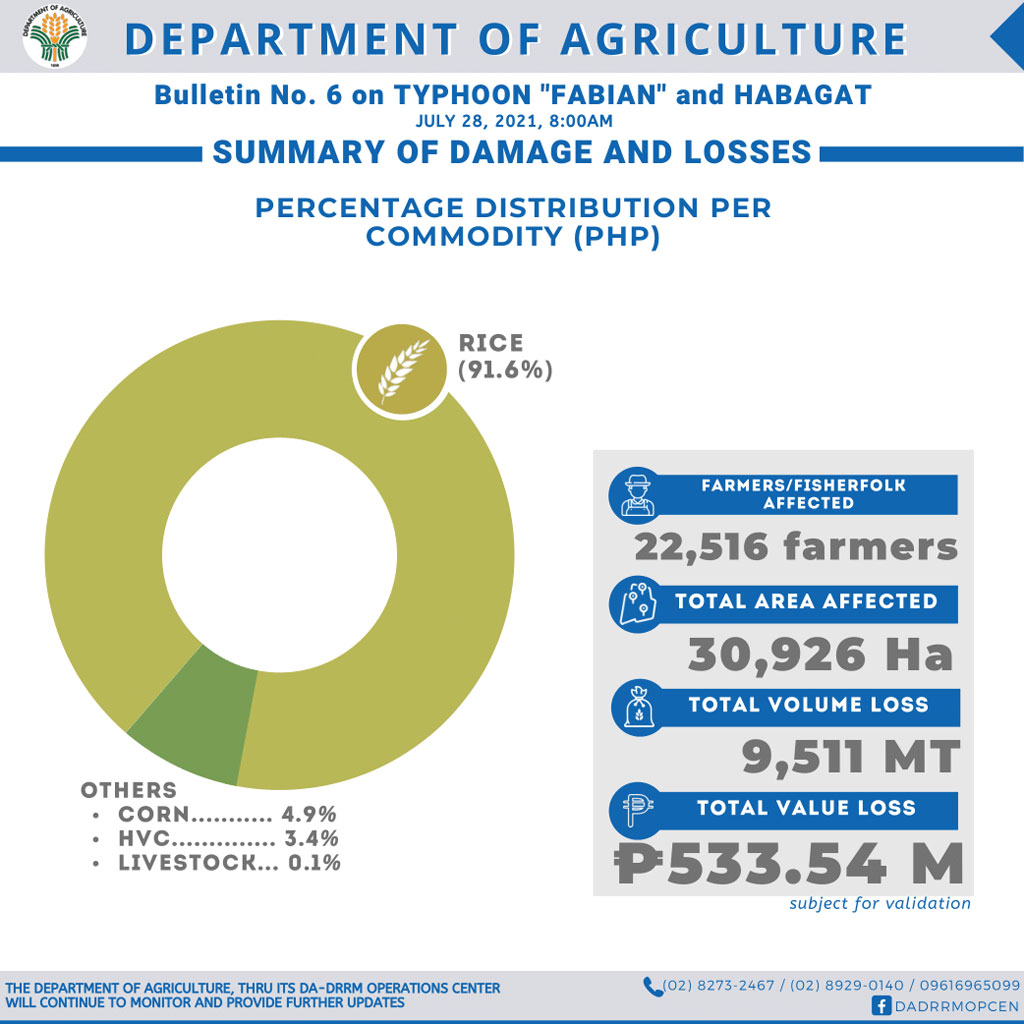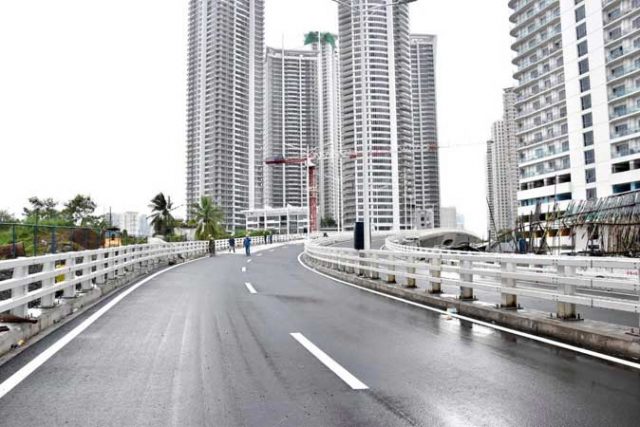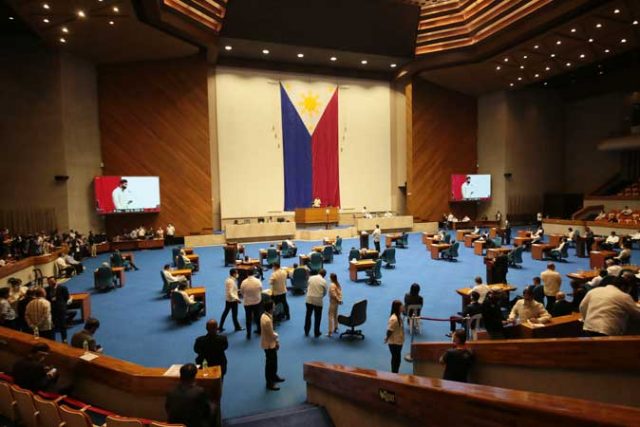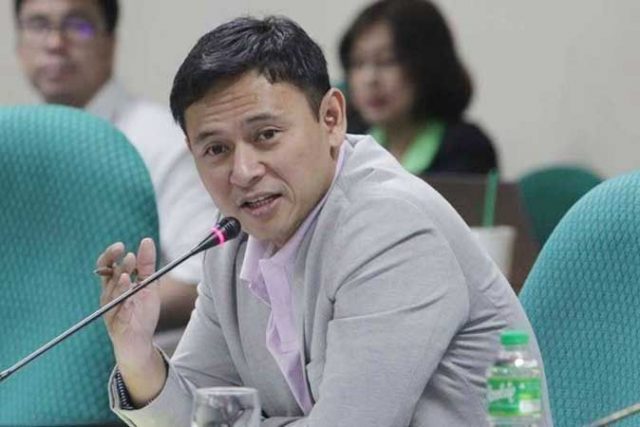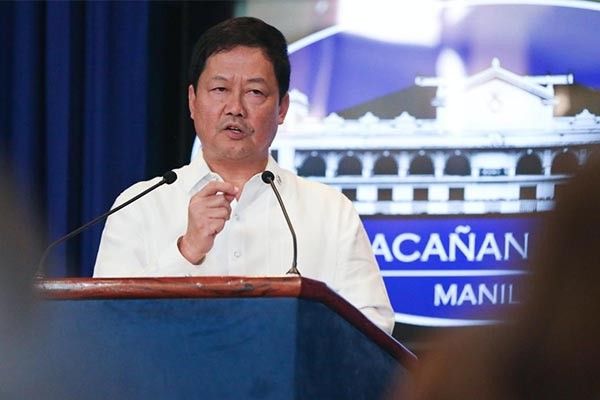DoH refutes OCTA claim of new COVID-19 surge
PHILIPPINE Health authorities on Tuesday night countered a research-based claim that Metro Manila was experiencing a surge in coronavirus infections.
“While there is an observed increase in cases, there is no definitive evidence of a surge in the National Capital Region,” the Department of Health (DoH) said in a statement.
The OCTA Research Group from the University of the Philippines on Tuesday flagged a fresh surge in coronavirus cases in Metro Manila, saying about 1,000 cases were being reported daily.
But DoH said the capital region only showed a 19% increase in its two-week growth rate.
The region had an average daily attack rate six for 100,000 people, which is considered a moderate risk, it added.
“The DOH noted the observations of independent expert groups but maintains that such observations should be carefully verified,” it said. OCTA should also be “more careful in making pronouncements in terms of the national situation.”
“While we acknowledge the differences in the metrics and methods of analysis used by these independent groups, we share the same goal to keep the case numbers down and improve the healthcare system of the country,” Health Undersecretary Maria Rosario S. Vergeire said in the statement.
OCTA said Metro Manila was officially under an infection surge after its coronavirus reproduction number increased to 1.33 from 0.6 last month, showing the virus was spreading faster.
OCTA has been urging the government to place the capital region under a strict lockdown again for two weeks to reverse the trend.
A so-called circuit-breaker lockdown should be complemented with expanded testing, tracing, and isolation to contain the fresh surge, which is said to be caused by a more contagious Delta coronavirus variant, OCTA said on Wednesday.
“The idea is to undertake an early and proactive intervention while cases are still relatively low and manageable to reduce infections and mortality,” it said in a statement. “Studies have shown that hard lockdowns that are implemented early when cases are still low and on the rise tend to be shorter and are less costly for the economy.”
In a virtual press briefing, OCTA fellow Fredegusto P. David said coronavirus infections in Metro Manila could go as high as 5,000 by the end of August if an early lockdown was not enforced.
Meanwhile, DoH epidemiologist Manuel C. Mapue II told a televised news briefing Metro Manila has posted 22 Delta variant cases, 16 of which remained active. The country had recorded 119 Delta variant cases as of July 24.
DoH reported 4,478 coronavirus infections on Wednesday, bringing the total to 1.56 million.
The death toll rose to 27,401 after 84 more patients died, while recoveries increased by 6,149 to 1.48 million, it said in a bulletin.
There were 54,552 active cases, 93.4% of which were mild, 1.2% were asymptomatic, 2.3% were severe, 1.64% were moderate and 1.4% were critical.
DoH said 11 duplicates had been removed from the tally, seven of which were tagged as recoveries and one as a death. Fifty-three recoveries were reclassified as deaths. Four laboratories failed to submit data on July 26.
The Philippines this week took delivery of 375,570 doses of the coronavirus vaccine made by
Pfizer, Inc. The government paid for the vaccines, he National Task Force Against COVID-19 tweeted on Tuesday.
About 17.51 million vaccine doses have been given out as of July 26, 11.2 million of which were first doses.
President Rodrigo R. Duterte on Monday said the country could no longer afford more
lockdowns given the strain on the economy, as he called on the public to get vaccinated.
He said he could not completely rule out stricter quarantines the Delta variant continues to spread.
On Tuesday, Vice President Maria Leonor G. Robredo urged the government to focus on the pandemic and its impact on the economy.
The country’s pandemic response “should be mirrored in the budget, in the agenda of every meeting within government, in every memo cascaded down the bureaucracy,” she said in speech day after Mr. Duterte’s last address to Congress.
Political analysts have said Mr. Duterte’s nearly three-hour state of the nation address was a missed opportunity to explain to the people how his government plans to address the threat of the Delta coronavirus variant
The President spent the first two hours of his speech talking about how he defeated the communist insurgency, while expressing disappointment about his failure to solve the country’s illegal drug problem. — Kyle Aristophere T. Atienza

